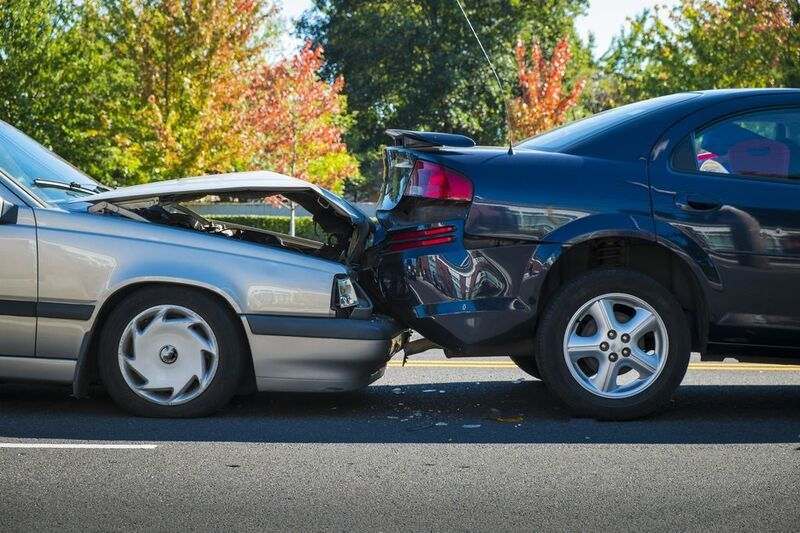
Rear-end collisions are one of Florida’s most common car accidents, often resulting in significant damages and injuries.
You might wonder what your case is worth if you sustained severe injuries in a rear-end crash.
One of the most common questions prospective clients ask is, What is the average settlement for a rear-end collision in Florida?
Unfortunately, it’s impossible to provide an average settlement for a rear-end collision because every case is unique.
If you want to learn how to calculate a possible rear-end car accident settlement amount, please get in touch with the experienced Florida auto accident legal team at Nonni Homola.
We can help you understand what your case is worth and how to maximize your potential settlement.
Call (850) 601-1111 or send us an online message today for a free consultation.
What Is the Average Payout for a Rear-End Collision?
Forget researching the average settlement for a rear-end collision in Florida, and get to know what factors impact your case value.
Some of the most important factors include the severity of injuries, liability, damages, and available insurance coverage.
Injury Type and Severity
Injuries that require extensive medical treatment, resulting in long-term disability, are typically worth more than a case involving minor soft tissue injuries that healed with minimal physical therapy treatments.
Someone with a pre-existing condition worsened by the collision will find their case might have a different value.
Liability
Florida is a no-fault state for car accidents, meaning your first recovery source is your personal injury protection (PIP) coverage.
Under Florida’s no-fault system, all drivers must carry personal PIP coverage. This policy typically provides coverage of up to $10,000 in medical and wage-loss benefits.
This policy reimburses your expenses, regardless of who was at fault for the accident. While the PIP coverage can help cover some of your medical expenses and lost wages, it may not be enough to cover all your damages.
Before you can pursue a personal injury claim for fault-based damages, you must meet Florida’s “serious injury” threshold requirement.
Your injuries must meet specific criteria, such as permanent injury, significant and permanent scarring or disfigurement, or substantial and permanent loss of a bodily function.
Once you meet the threshold, you must prove the other party is responsible for your injuries. Rear-end collisions are typically the fault of the driver who rear-ended the other vehicle, but not always.
If you’re partially responsible for the collision, your potential settlement will be reduced by your percentage of fault.
For example, if you’re 20% at fault for the accident, you’ll only receive 80% of your losses.
To successfully prove liability in a rear-end collision, you must prove all elements of negligence:
- The other driver owed you a legal duty;
- They breached this duty;
- The breach of duty caused the accident, and
- You suffered injuries (damages).
Comparative liability can be a significant factor in a rear-end collision settlement in Florida. There may be situations where the rear-ended driver may have contributed to the accident.
For example, if the front driver suddenly slams on their brakes for no reason, they may be found to be partially at fault for the accident.
Damages
The damages you incurred as a result of the accident will also be a significant factor in determining the value of your settlement.
The value includes economic damages (such as medical expenses, lost wages, and property damage) and non-economic damages (such as pain and suffering, emotional distress, and loss of enjoyment of life).
The more extensive your damages, the higher your settlement might be.
With no-fault PIP coverage, you cannot collect compensation for fault-based damages, such as pain and suffering. No-fault coverage limits you to compensation for some of your economic damages only.
When you contact a Florida car accident lawyer, we will help identify all potential sources of recovery and whether you qualify to pursue a personal injury claim.
Available Insurance Coverage
If the at-fault driver has minimal insurance coverage, it may be difficult to recover the total value of your damages.
However, if you have uninsured/underinsured motorist coverage, this can help bridge the gap and ensure you receive the compensation you need.
Another option is to pursue a contribution from another party if multiple people were at fault for the rear-end collision.
Your recovery will be limited to no-fault PIP limits in an accident that doesn’t meet the threshold for a fault-based claim. If PIP doesn’t cover all your medical expenses and lost wages, you might still be out of pocket.
Contact a Florida Car Accident Lawyer
If you sustained severe injuries in a rear-end collision, you could have the right to pursue a personal injury claim. These claims can be complicated to resolve.
Don’t attempt to pursue a claim independently—let Nonni Homola help. We have years of experience representing injured clients in Florida car accidents.
Our lawyers know what it takes to build a solid case. Contact our office online or by calling (850) 601-1111 today to schedule a free, no-obligation consultation to learn how we can help.

